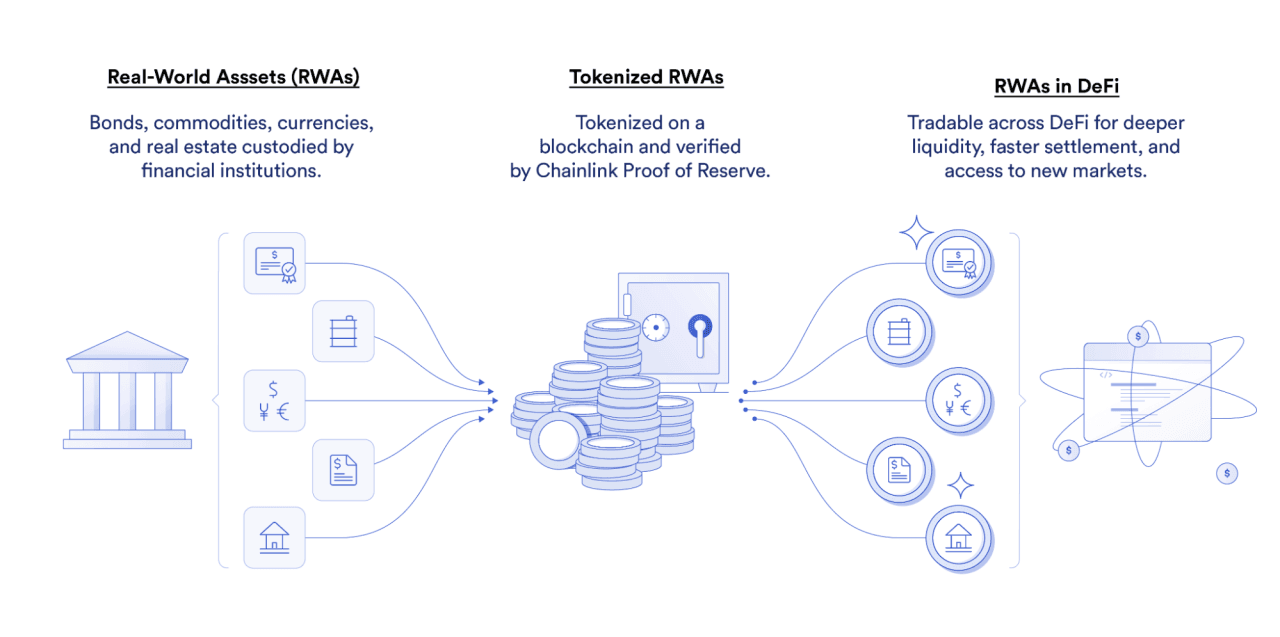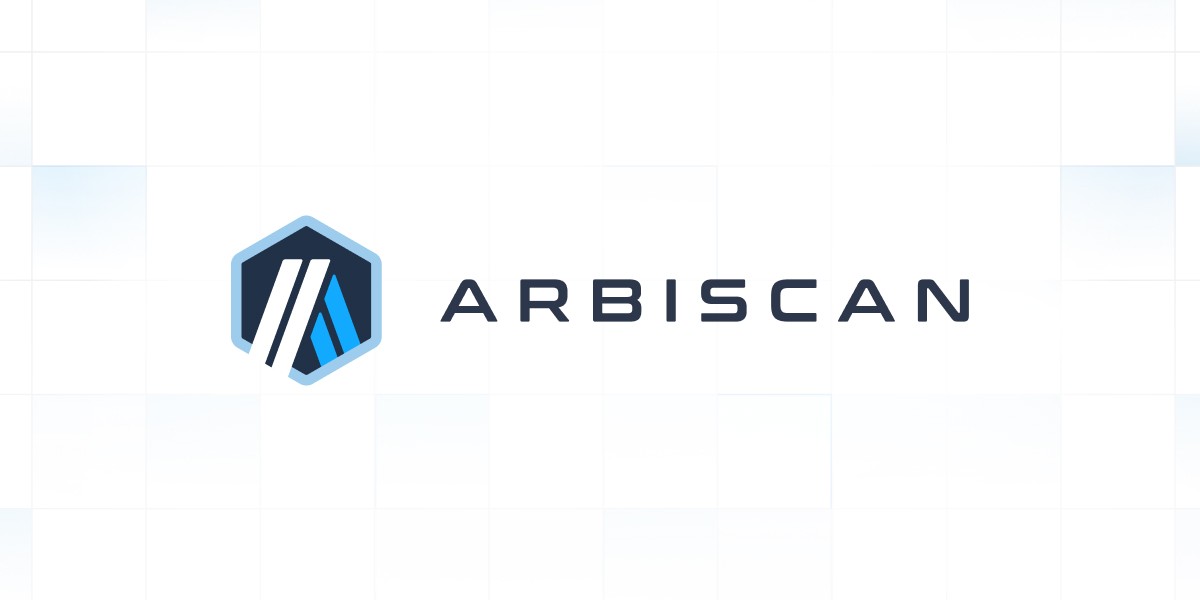
Yiying Hu
Aug 1, 2024
Learn how to invest in Bitcoin and Ethereum ETFs like BITO and IBIT, simplifying your access to the crypto market without the need for digital wallets or complex exchanges.
Bitcoin and Ethereum ETFs offer a new way to invest in cryptocurrencies without the hassle of digital wallets or complex exchanges. These investment products track the price of Bitcoin or Ethereum, providing exposure to the crypto market through traditional brokerage accounts.
As the crypto landscape evolves, understanding Bitcoin ETFs like BITO and IBIT, as well as Ethereum ETFs, becomes crucial for investors seeking to diversify their portfolios. 2
With over a decade of experience analyzing cryptocurrency markets, I've witnessed the transformative impact of ETFs on crypto investing. These funds simplify access to digital assets, making them more accessible to a wider range of investors. 3 In this guide, we'll explore the ins and outs of Bitcoin and Ethereum ETFs, helping you make informed investment decisions. Ready to learn more about these groundbreaking investment vehicles? 1
Key Takeaways
Bitcoin and Ethereum ETFs let investors access cryptocurrencies through traditional brokerage accounts without needing digital wallets.
Spot Bitcoin ETFs hold actual Bitcoin, while strategy ETFs use futures contracts to track prices. The first Bitcoin ETF launched in Canada in February 2021.
Popular Bitcoin ETFs include ProShares Bitcoin Strategy ETF (BITO) and BlackRock's iShares Bitcoin Trust (IBIT), which charges a 0.25% fee.
Crypto ETFs offer high return potential but come with risks like market volatility and regulatory uncertainty. Bitcoin's value rose over 300% in 2020.
When choosing a crypto ETF, investors should compare fund holdings, fees, and sponsoring companies. Franklin Templeton's Bitcoin ETF has a low 0.19% fee.
Exploring Bitcoin and Ethereum ETFs
Bitcoin and Ethereum ETFs offer investors a new way to access the cryptocurrency market. These investment vehicles track the prices of Bitcoin and Ethereum without requiring direct ownership of the digital assets.
Defining a Bitcoin ETF
A Bitcoin ETF, or Exchange-Traded Fund, offers investors exposure to Bitcoin without directly owning the cryptocurrency. These funds track Bitcoin's price and trade on traditional stock exchanges.
Investors can buy or sell shares of the ETF just like stocks, making it easier to add Bitcoin to their portfolios. 2
Bitcoin ETFs come in two main types: physically-backed and futures-based. Physically-backed ETFs hold actual Bitcoin, while futures-based ETFs invest in Bitcoin futures contracts. The first Bitcoin ETF, Purpose Bitcoin ETF (BTCC), launched in Canada in February 2021. 1 These investment vehicles provide a regulated way for traditional investors to gain crypto exposure without dealing with digital wallets or crypto exchanges.
Explaining an Ethereum ETF
An Ethereum ETF provides investors exposure to Ether without directly owning the cryptocurrency. This investment vehicle tracks the price of Ethereum, allowing people to buy and sell shares through traditional brokerage accounts.
Ethereum ETFs offer a way to invest in the second-largest cryptocurrency by market cap, which powers a platform for smart contracts and decentralized applications. 1
Launched in 2015, Ethereum has gained significant institutional interest since the introduction of ETFs. 1 Strategy ETFs, which use futures contracts to track Ether's price, came before spot ETFs.
These funds give investors a chance to profit from Ethereum's potential growth while avoiding the challenges of cryptocurrency wallets and exchanges. ETFs also provide benefits like liquidity, transparency, and regulatory oversight, making them an appealing option for those new to crypto investing. 3
Comparing Spot and Strategy Bitcoin ETFs
Spot and Strategy Bitcoin ETFs offer different approaches to cryptocurrency investment. Each type has unique features that affect investor outcomes.

Investors should weigh these differences when choosing between spot and strategy Bitcoin ETFs. Each option suits different investment goals and risk tolerances. 1 4
Leading Bitcoin and Ethereum ETFs Today
Bitcoin and Ethereum ETFs have gained popularity among investors seeking exposure to cryptocurrencies. Several funds stand out in today's market, offering different strategies and levels of risk.
Overview of BITO, ProShares Bitcoin Strategy ETF
ProShares Bitcoin Strategy ETF (BITO) stands out as a pioneering investment vehicle in the U.S. crypto market. Launched as the first Bitcoin futures ETF, BITO offers investors exposure to Bitcoin's performance without direct ownership.
This fund invests in Bitcoin futures contracts traded on regulated exchanges, providing a secure way to gain crypto exposure. 5
BITO aims to enhance portfolios through potential growth, diversification, and inflation hedging. The fund's assets are managed on regulated platforms and secured by qualified custodians, offering an added layer of protection for investors new to the crypto space.
As we explore other Bitcoin and Ethereum ETFs, let's examine BlackRock's iShares Bitcoin Trust (IBIT). 6
Insights into IBIT, BlackRock's iShares Bitcoin Trust
BlackRock's iShares Bitcoin Trust (IBIT) offers a straightforward way to invest in Bitcoin through an ETF. This fund simplifies cryptocurrency investment for those who prefer traditional financial institutions.
IBIT charges a competitive 0.25% sponsor fee, which drops to 0.12% for the first year on assets up to $5 billion starting January 11, 2024. 7
IBIT partners with Coinbase to enhance security and quality. This collaboration aims to address concerns about crypto custody and regulatory compliance. The trust's structure appeals to the 80% of Bitcoin holders who prefer managing their investments through established financial platforms.
By offering exposure to Bitcoin's potential growth while mitigating some risks associated with direct cryptocurrency ownership, IBIT presents an attractive option for investors seeking crypto market participation. 8
Features of Valkyrie's Bitcoin and Ether Strategy ETF
Valkyrie's Bitcoin and Ether Strategy ETF offers investors exposure to both Bitcoin and Ethereum through futures contracts. This fund aims to provide capital appreciation by investing in Bitcoin and Ether futures listed on the Chicago Mercantile Exchange.
The ETF's strategy involves active management, allowing it to adjust positions based on market conditions. 10
Unlike spot ETFs, Valkyrie's fund doesn't hold actual cryptocurrencies. Instead, it uses derivatives to track Bitcoin and Ethereum prices. This approach may appeal to investors seeking crypto exposure without direct ownership.
The fund's structure also allows for potential inclusion in traditional brokerage accounts, making it accessible to a wider range of investors. 9
Advantages and Challenges of Bitcoin and Ethereum ETFs
Bitcoin and Ethereum ETFs offer potential high returns but expose investors to crypto market volatility and regulatory risks. Read on to learn how to balance these factors and make informed investment decisions.
Exploring Potential High Returns
Bitcoin and Ethereum ETFs offer investors the chance to tap into the high-growth potential of digital currencies. These funds track the price movements of cryptocurrencies, potentially delivering significant returns.
For example, Bitcoin's value surged over 300% in 2020, outperforming many traditional assets. 1 Ethereum's native token, Ether, has also shown impressive gains, rising more than 400% in the same year. 11
Investors can gain exposure to these digital assets without directly owning or managing them through ETFs. This approach allows for easier integration into existing investment portfolios and may provide tax advantages compared to direct cryptocurrency ownership.
However, it's crucial to understand that while potential returns are high, so are the risks due to the volatile nature of crypto markets.
Assessing Exposure to Crypto Market Volatility
While potential high returns attract investors, cryptocurrency ETFs also expose them to market volatility. Bitcoin's price fluctuations illustrate this risk, with the asset experiencing short-term ups and downs despite a 40% year-to-date gain. 13 Ethereum follows a similar pattern, showing a 45% increase this year but still subject to rapid price changes.
Investors should prepare for significant swings in their ETF values. These funds track digital assets known for their price instability, which can lead to sudden gains or losses. 12 Understanding this volatility helps investors make informed decisions about including crypto ETFs in their portfolios, balancing potential rewards against the risks of market turbulence.
Evaluating Regulatory and Custodianship Risks
Regulatory and custodianship risks pose significant challenges for Bitcoin and Ethereum ETFs. The SEC's cautious approach to approving these funds stems from concerns about market manipulation and investor protection. 14 Despite the recent approval of 11 spot Bitcoin ETFs in January 2024, the regulatory landscape remains uncertain. This uncertainty could impact ETF operations and investor confidence.
Custodianship risk is another key factor to consider. Many Bitcoin ETFs rely heavily on Coinbase for storing their Bitcoin holdings. This concentration raises concerns about the safety of assets if Coinbase faces operational issues or security breaches. 15 Investors should weigh these risks against the potential benefits of crypto ETFs before making investment decisions. Next, we'll explore how to select the best Bitcoin and Ethereum ETF for your portfolio.
Selecting the Best Bitcoin and Ethereum ETF
Choosing the right Bitcoin or Ethereum ETF requires careful research. Investors should compare fund holdings, fees, and the reputation of sponsoring companies.
Analyze Fund Holdings
Examining a Bitcoin or Ethereum ETF's holdings is crucial for informed investing. Look at the fund's assets, which may include direct cryptocurrency, futures contracts, or related securities.
For spot ETFs like Grayscale Bitcoin Trust (GBTC), check if they hold actual Bitcoin. Strategy ETFs might use futures or other derivatives. The Franklin Templeton Digital Holdings Trust, with its low 0.19% fee, offers direct Bitcoin exposure. 16
Review the ETF's investment strategy and asset allocation. Some funds, like the Valkyrie Bitcoin and Ether Strategy ETF, combine multiple cryptocurrencies. Others focus on a single asset.
The fund's approach to custody and security measures also matters. For example, the Grayscale Ethereum Trust (ETHE) is the largest spot Ethereum fund globally, with a 2.50% expense ratio.
Understanding these details helps align the ETF with your investment goals and risk tolerance. 17
Review Fees and Promotions
Fees and promotions play a crucial role in selecting Bitcoin and Ethereum ETFs. Top spot Bitcoin ETFs offer competitive rates, with Franklin Templeton Digital Holdings Trust charging 0.19%, Bitwise Bitcoin ETF at 0.21%, and VanEck Bitcoin Trust at 0.20%. 4 A fierce price war has erupted among ETF issuers, leading to reduced fees and promotional waivers to attract investors. Some Ethereum ETFs have even temporarily waived fees to entice initial investments.
Investors should compare these costs carefully, as they can impact overall returns. 18 Lower fees often translate to better performance over time. 18 But don't focus solely on cost – consider the ETF's track record, assets under management, and trading volume too.
The next step in choosing the right Bitcoin or Ethereum ETF involves investigating the companies behind these funds.
Investigate ETF Sponsoring Companies
Researching the companies behind Bitcoin and Ethereum ETFs is crucial. Major players like Fidelity, BlackRock, and Invesco have entered the market with SEC-approved spot Bitcoin ETFs.
These firms bring financial expertise and resources to crypto investments. BlackRock, for instance, waived part of its fees until total assets hit $5 billion, showing commitment to growth. 4
Investors should examine each sponsor's track record, financial stability, and crypto experience. Fidelity's Ethereum Fund (FETH) offers a competitive 0.25% fee, waived until December 31, 2024.
This fee structure highlights the importance of comparing costs across different ETF options. Next, we'll explore how to select the best Bitcoin and Ethereum ETF for your portfolio. 19
Advice on Consulting a Financial Advisor
After researching ETF sponsoring companies, consider seeking professional guidance. A qualified financial advisor can offer personalized insights into Bitcoin and Ethereum ETFs. These professionals assess your financial goals, risk tolerance, and overall investment strategy.
They provide specific advice on how crypto ETFs fit into your portfolio. 20
Financial advisors stay updated on market trends and regulatory changes affecting crypto investments. They help you understand the tax implications of trading Bitcoin and Ethereum ETFs.
Forbes Advisor notes that consulting an expert is important before making investment decisions. This step ensures you make informed choices aligned with your long-term financial objectives. 21
Conclusion
Bitcoin and Ethereum ETFs provide a connection to the cryptocurrency market for conventional investors. These financial products allow exposure to digital assets without direct ownership.
Thoughtful selection of ETFs involves examining fund holdings, fees, and sponsoring companies. Possible high returns come with exposure to market volatility and regulatory risks. Consulting a financial advisor can help manage the intricacies of crypto ETFs.
This guide provides investors with information to make informed decisions in the developing landscape of digital asset investments.
FAQs
1. What are Bitcoin and Ethereum ETFs?
Bitcoin and Ethereum ETFs are investment products that track the price of these cryptocurrencies. They offer exposure to digital assets without direct ownership. These ETFs trade on commodity exchanges like traditional stocks.
2. How do I buy a Bitcoin or Ethereum ETF?
You can purchase these ETFs through your brokerage account. Popular options include IBIT and BITO for Bitcoin. Research the Ethereum ETF list for available choices. Compare expenses and margin requirements before investing.
3. Are Bitcoin and Ethereum ETFs taxed differently than other investments?
Bitcoin and Ethereum ETFs are taxed like other securities. You may owe capital gains tax on profits. Dividends and interest income are also taxable. Consult an investment advisor for specific tax advice.
4. What risks should I consider with crypto ETFs?
Crypto ETFs face high price volatility. They lack deposit insurance unlike bank accounts. Market sentiment can change rapidly. Blockchain technology is still evolving. Always research thoroughly before investing.
5. Can I use leverage with Bitcoin and Ethereum ETFs?
Some brokers offer leveraged crypto ETFs. These amplify potential gains and losses. They carry higher risks than non-leveraged options. Understand the bid/ask spread and expenses before using leverage.
6. How do Bitcoin and Ethereum ETFs compare to owning cryptocurrencies directly?
ETFs don't require a crypto wallet or managing private keys. They're easier to buy and sell through existing brokerage accounts. However, you don't own actual Bitcoin or Ethereum. ETFs may not fully reflect the underlying asset's performance due to tracking errors.
References
^ https://www.linkedin.com/pulse/exchange-traded-funds-etfs-exploring-bitcoin-ethereum-benjamin-arunda-1unof
^ https://www.investopedia.com/investing/understanding-cryptocurrency-etfs/
^ https://crypto.com/university/what-are-bitcoin-and-ethereum-etfs
^ https://www.nerdwallet.com/article/investing/spot-bitcoin-etf
^ https://www.blackrock.com/us/financial-professionals/investment-strategies/bitcoin-investing
^ https://www.ishares.com/us/strategies/ways-to-invest-in-bitcoin
^ https://papers.ssrn.com/sol3/papers.cfm?abstract_id=4856380
^ https://www.ulam.io/blog/understanding-bitcoin-etfs-risks-and-opportunities (2024-03-13)
^ https://home.treasury.gov/system/files/136/CryptoAsset_EO5.pdf
^ https://www.etf.com/sections/etf-basics/how-choose-best-spot-bitcoin-etf
^ https://www.nerdwallet.com/article/investing/ethereum-etfs (2024-07-23)
^ https://www.morningstar.com/funds/whats-next-spot-ether-etfs (2024-07-23)
^ https://www.forbes.com/advisor/investing/cryptocurrency/best-bitcoin-etfs/
^ https://dacfp.com/wp-content/uploads/2024/07/The-DACFP-Financial-Advisor-Guide-to-Spot-Ethereum-ETFs-4.pdf (2024-07-24)
Recommended articles




